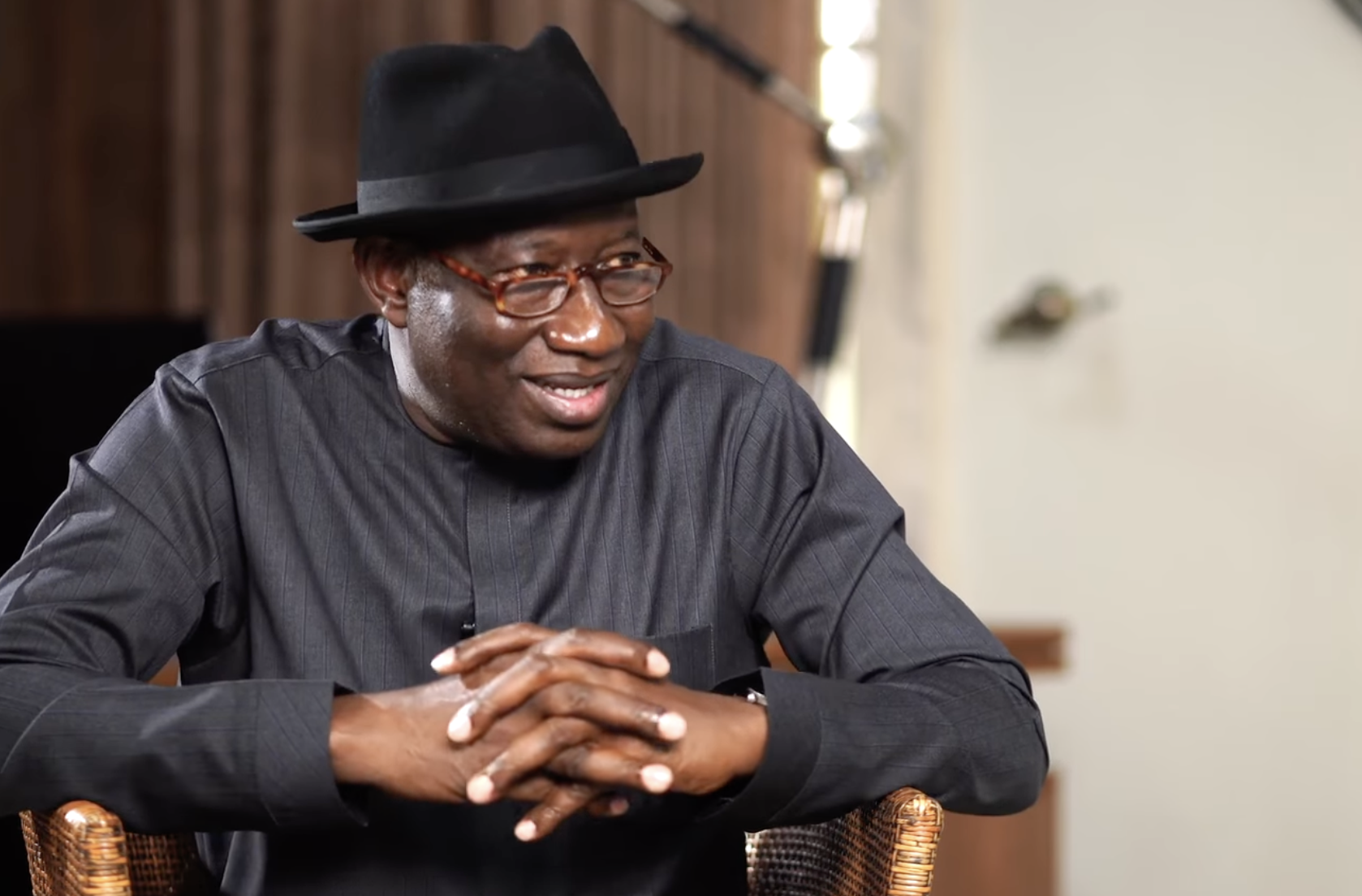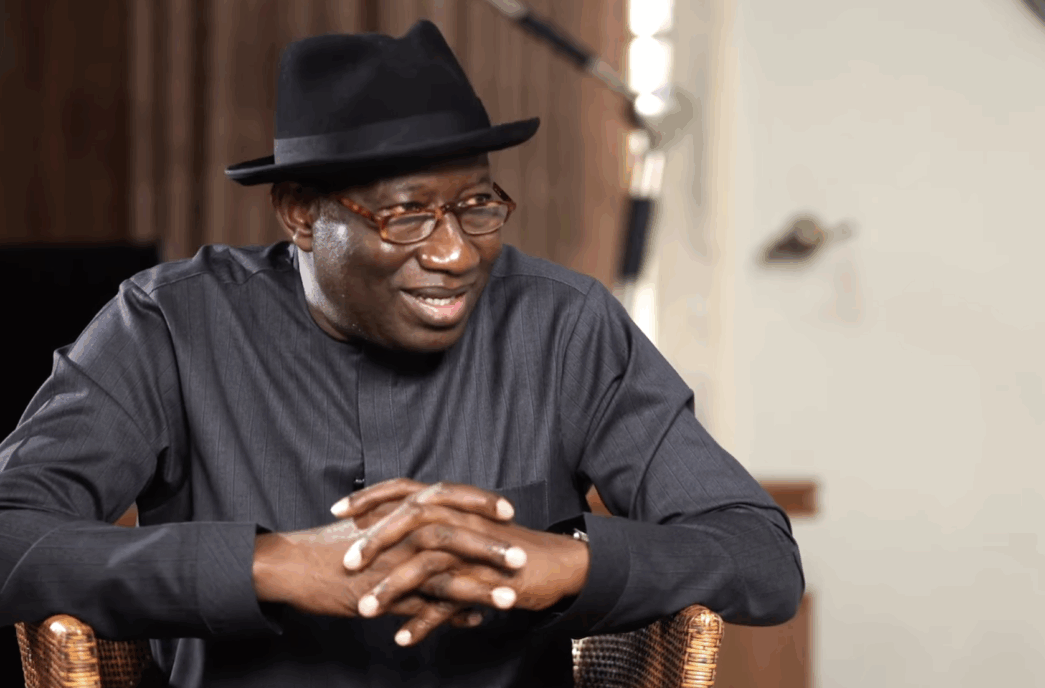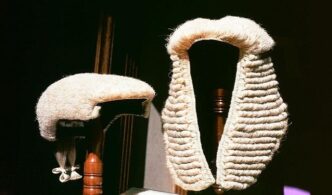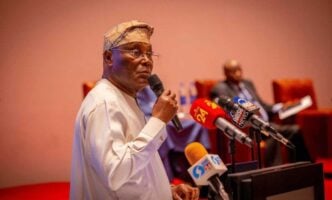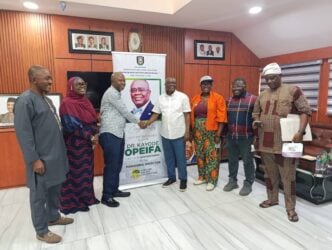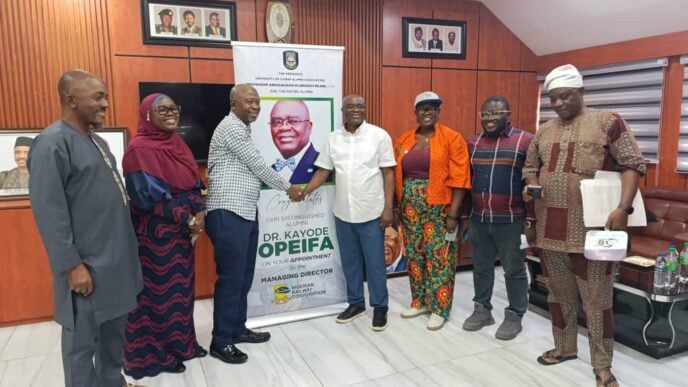Poor Goodluck Ebele Jonathan! Last Thursday, at the 70th birthday of his ex-Chief of Staff, Chief Mike Aiyegbeni Oghiadomhe, in Benin, Edo state, the former Nigerian president revealed the soft underbelly of Nigerian politics. At that event, Jonathan opened up a wound he had nursed since he lost the 2015 presidential election. It was his ordeals in the hands of political Askaris. “Politics in the Nigerian standard is about betrayals. I have witnessed a lot of betrayal during 2015 election,” he said.
Apart from politics, in liberation struggles, betrayers and betrayals are rife. During South Africa’s apartheid era, a number of former activists, or “comrades” who formed a bulwark of resistance against white minority rule, turned coat. A sedimentation of betrayals could be found in the Azanian People’s Liberation Army (APLA) and the African National Congress (ANC’s) military wing, Umkhonto we Sizwe (MK). Either bought or forced through torture, “Comrades” of the struggle morphed into operatives for the Apartheid regime, squealing on their ex-comrades and acting as police agents. Many even participated in death squads against their former allies. They were then given the derogatory label of Askari. Initially a moniker for police in Swahili, especially local soldiers serving in the armies of the European colonial powers in Central Africa, ‘Askari’ stuck on Apartheid era turncoats.
My first opportunity of meeting Jonathan, the man who would be president of Nigeria, was in 2005 at Idah, (I guess) Kogi state. Ostensibly seeking ties to the apron strings of then PDP national chairman, Dr. Ahmadu Ali, Jonathan had come to Idah for Ali’s child’s wedding ceremony. It was at the thick of the crisis of Diepreye Solomon Alamieyeseigha who was subsequently removed by the Bayelsa state house of assembly. Alamieyeseigha had riveted all eyes towards his native Bayelsa through being at the epicenter of a sleazy money laundering allegation in the UK. Arrested and detained in London in September 2005 by the Metropolitan police for being in possession of about £1m cash, it was obvious that time had begun to tick for the man who was large in both size and appetite for the public till. A total of £1.8m ($3.2m) in cash and bank accounts was later traced to him, as well as four homes in London that were worth an alleged £10 million. Alamieyeseigha eventually allegedly jumped bail disguising as a woman.
The Jonathan I saw at Idah was as harmless and peaceful as the white pigeon, a mythical bird Yoruba call Adaba. The people even deified Adaba with an ancient tag which holds that if she perches on your rooftop, peace had made it its hibernation. It must be why French-Nigerian singer and songwriter, Bukola Elemide, followed on her people’s path. In her famous track, Adaba, Elemide invited the bird to perch upon her as an early morning sacral of peace, well-being and wealth. “Ojúmó ti mó…Ní’lẹ yí o o… mo rí re ò/Ẹyẹ àdàbà…/Ẹyẹ àdàbà tí ń fò ló kè ló kè/Wá bà lé mi o o…” she sang. An apparently ornithophile Elemide may someday have to explain the contradiction in her assumption of Asa, (hawk) a bird known for her ruthlessness, as stage-name, while beatifying Adaba, a bird of gentle, peaceable and peaceful disposition. Asa’s hooked beaks, muscular talons of sharp claws, grab and tear her preys with ferocious simplicity.
Advertisement
Sorry, I digressed. In Idah that day, Jonathan appeared to me as wearing the innocence of a child. He cut the visor of a man alien to the scorched-earth hearts of Nigerian politicians. Over the years however, I presumed Jonathan’s participation at the highest echelon of Nigerian politics had sufficiently scarred his heart. My assumption was predicated on an ancient saying of my people, to wit that, until you acquire the status of the elderly, you will constantly frolic with children who then stomp on you like one desecrating a sacred shrine, (B’á ò ní nkàn àgbà, bí èwe l’àá rí).
Last week however, Jonathan seemed to have come of age. He wore the full plumage of Nigerian politics. The truth is that, in Nigerian politics today, at least since the First Republic, there has been a confetti of betrayals. It has got to an epidemic level, so much that trust, tired of abuse, developed wings and flew out of Nigerian politics. Politicians laugh at anyone who expresses surprise at serial betrayals among them. The situation today is that men and women of honour take a flight from it.
However, in virtually all Nigerian and indeed, African traditional values, trust holds a sacred place. Professor of International Studies at Brown University, Daniel Jordan Smith, in his exploration of trust in the Igbo value system, said he found out that trust not only has a wide social significance, it invites moral and metaphorical interpretations. In his epochal journal article with the title, “‘A debt never dies’: Navigating trust and betrayal in southeastern Nigeria” Sage: 2024, Smith concluded that Igbo’s regular confrontations with monetary debts showed them that trust is sacred and integral to everyday life.
Advertisement
In the Yoruba society and in the people’s everyday life, trust and betrayal are very fundamental as well. Virtually all of their relationships are woven round trust, for cohesion, peace and societal stability. Because experience showed them that deviants exist who break the cord of trust, covenants called Ìmùlẹ, literally meaning ‘drinking (from) the water of the earth’ and Májèmú, whose literal translation is, ‘drinking from a calabash bowl’, are used to suborn agreements. In both agreements of Ìmùlè and Májèmú made between parties, the earth – which Yoruba Apala bard, Ayinla Omowura, in a deployment of a Hausa epithet, called, ‘gidan kowa’ – home of all – is invoked to witness and ensure abidance.
When either of the parties reneges from these covenants, the Yoruba say, Ó da’lẹ. The one who wrongs the other is then the Ọdà’lẹ, or in translation, “betrayer of the earth”. The consequence of betrayal in Yorubaland isn’t benign. Either said during the agreement process or not, the phrase, “whosoever betrays the earth will disappear with the earth” (ẹni t’ó bá da’lè, á bá ilẹ l”ọ) is a poignant reminder that silent as the earth, the witness, may be during agreements (verbal or non-communicated) the earth is a dangerous mystical personality which reserves punishment for violation of agreements made while standing on it – “ilè ọgẹrẹ af’ọkọ yẹ’rí, al’ápò ìkà”.
In social or political relations, some deviants have however had a history of undermining the concept of trust by attempting to put a lie to land’s mystical personality. On many occasions when they did that, they have been recipients of catastrophic comeuppances. While there are so many examples in individual social relations, political examples will aptly illustrate the trust deficit which Goodluck Jonathan said was as rare as the teeth of a hen in Nigerian politics.
Take for instance the experience of Chief Obafemi Awolowo. While the political successes of this Yoruba people’s recent ancestor have remained legendary till today, seldom is a dig done into the betrayals that dogged his political career. When he chose to vacate Western Nigeria to contest to be Nigeria’s Prime Minister, unable to secure the needed votes, one of his associates said this of him, as recorded by Awolowo himself: “I warned him when he was going to contest the Federal Elections – ‘Do not go to the Federal House, sit down like the Sardauna of Sokoto in the Northern Region, sit down like Dr. Azikiwe in the East.’ He would not listen, he wanted to become the Prime Minister. Now he has failed and since his failure the man has become insane. Since his failure, the man has become sick. So I appeal to the Prime Minister to put him in an asylum.” The man was one Chief E. O. Okunowo, representing Ijebu Central of the Western Region, at the First Republic Federal House of Representatives. You will find it on page 167 in Awolowo’s The travails of democracy and the rule of law (1987).
Advertisement
Awo’s closest political allies plotted his political ruin and death. They sent him to jail and gloated about the loss of his first son. Their plan was for him not to return from the Calabar prison. During the second republic, the stench of betrayal did not abate. Some of his closest allies had even begun angling to run for presidency in the proposed 1987 election.
Chief Ayo Rosiji, Awolowo’s main lieutenant and one of the founders of the Action Group, also gave him the Julius Caesar’s Brutus stab. This brilliant engineer and lawyer resigned his position as Publicity Secretary of the Action Group and ported to the opposition party. Rosiji it was who told his biographer, Australia-born historian, Dr. Nina Mba, in the biography, Man With Vision, of another betrayal that could have assumed Nigeria-wide shock. According to Mba, Rosiji told her that sometime in late 1958, Nigeria’s Prime Minister, Tafawa Balewa, was about to betray his political godfather, Ahmadu Bello, the Sardauna of Sokoto. Writes Mba, “According to Rosiji,… Balewa confided in him that he was fed up with being prime minister and of being harassed by the Sardauna, and that he was thinking of resigning.” Rosiji said he then attempted to convince Balewa to, rather than dump Bello and return to his teaching job as he threatened, join Awolowo’s Action Group. While Balewa thought that was an outlandish suggestion, Rosiji asked him to “think about it.”
S. L.Akintola is another. Till today, the reason for the schism between him and Awolowo remains mythic. While Chief Bola Ige, in his People, politics and politicians of Nigeria (1995) said the reason was trust deficit as Awolowo “(left) in charge of his base a deputy and Premier whom he did not quite trust and who was not his choice,” some scholars like Bill Dudley and Eghosa Osaghae said it was ideological differences. Ige also said, rather than SLA, Awolowo favoured either Anthony Enahoro or Chief FRA Williams as his successor but had to succumb to party elders like Dr. Akanni Doherty and Akinola Maja who articulated the need to pick Akintola who had then become the Deputy Leader of the AG after the death of Chief Bode Thomas. In his biography cited above however, Awolowo said he would have preferred Chief Rotimi Williams to succeed him. Those who convinced him to the contrary, he wrote, were his lieutenants – Chief S. O. Gbadamosi and Dr. Akanni Doherty.
In the South African revolutionary struggle against Apartheid, one untold undercurrent seldom said was the activities of Askari. These were revealed by Jacob Dlamin in his book, Askari: A story of collaboration and betrayal in the anti-apartheid struggle (2009) which won South Africa’s 2015 Sunday Times Alan Paton Award. It was the story of Glory Lefoshie Sedibe, popularly known as Comrade September, a member of ANC who was also a senior operative of its military wing, the deadly Umkhonto we Sizwe (MK). Abducted and tortured by the Apartheid government’s police death squad from his hideout in Swaziland in August 1986 and taken across the border to South Africa by Eugene de Kock, after being mercilessly tortured, September eventually agreed to work for the people he spent his whole life attacking. He then went full swing, in the words of Dlamin, “from resister to collaborator, insurgent to counter-insurgent, revolutionary to counter-revolutionary and, to his former comrades, hero to traitor.” He died March 20, 1994 aged 40, suspected to have been killed from drinking a poisoned alcohol.
Advertisement
In Jonathan’s lamentation of betrayal in Nigerian politics, there is however the need to draw a line between the wickedness of godfatherism and self-liberation of godsons cloaked as betrayals. As I wrote in the piece, “His Excellency the godfather” (June 24, 2018) what is termed political betrayal in 4th Republic Nigerian politics is actually godfatherism gone sour. In 2003 Anambra State for instance, Chris Uba, the barely literate but stupendously wealthy businessman, exposed the destructive phenomenon. He had financed the election of Chris Ngige to be governor, pulling him by the nape of his trousers to the Okija shrine to swear by an oath of abidance. When it was time to start drawing from his “investment,” Ngige reneged, details of which became a global embarrassment to Nigerian politics.
What the Ngige-Uba political scandal revealed was that merchandising by political criminals had found its way into Nigerian elections where investments are made with an eye on bountiful returns. The phenomenon of godfatherism is sustained by recourse to African traditional medicine, whereby the godfather and godson go before groves of renowned destructive shrines to swear oaths of allegiance.
Advertisement
After the 2007 handover to lackeys by the 1999 governors set, the cookies began to crumble. Some of the cookies were immediate while many took longer time. In Lagos’ Bola Tinubu and the trio of Raji Fashola, Akinwumi Ambode and Jide Sanwo-Olu, what many earlier saw was a matrimony worthy of an example. Tinubu continued to reap the dividends of his ‘investments’ in his handpicked successors. He determines the political barometer of Lagos politics and holds the lids of its finance. Not until the re-election campaign of Fashola and Ambode and Sanwo-Olu’s alleged cash gift to Tinubu’s political enemies did the cracks begin to be noticeable. Tinubu himself is said to parade a graveyard of those who betrayed him.
In many other states subsequently, the matrimony became a bedlam almost immediately. In Enugu, for instance, Sullivan Chime was still a governor-elect when he started to undo all that his mentor and godfather did. Orji Kalu suffered same fate in Abia, where his erstwhile Chief of Staff, T. A. Orji eventually emerged governor. Orji spent his years in government firing ballistic missiles at Kalu who had spent billions of state funds to skew the process in his favour. This ‘betrayal’ has since then been replicated in virtually all the states, with anointed godsons, having mutated to become godfathers themselves, attempting to foist their own godsons too as successors. In Anambra, Peter Obi, while shopping for a godson, walked into the supposedly sane banking hall as he searched for an urbane, corporate world executive. He got Willie Obiano, a mirthless character. Less than a year after, the strange, somber-looking Obiano transmuted from the gentleman who couldn’t hurt a fly into a stone-hearted political pall-bearer who strenuously attempted to preside over Obi’s political funeral. It was same story in Kano State where Umar Ganduje, erstwhile Rabiu Kwankwaso’s lickspittle, became a hydra who sought to swallow his ex-boss. I am told that Emmanuel Uduaghan surreptitiously did his cousin, James Ibori in, even while the latter served his term in the UK slammer.
Advertisement
The list is endless. The most recent is the stench of the Nyesom Wike-Siminalayi Fubara ‘betrayal’ claim in Rivers State. If Fubara is Askari to Wike, isn’t Wike Rivers people’s Askari? In all these however, a few have remained true to their predecessors, like the Kogi State governor. This is regardless of the predecessor’s betrayal of the people of his state.
The chestnut I’m pulling out of the fire today is that, from the Goodluck Jonathan betrayal story of last Thursday, you cannot get a morality tale in which the lines between heroes and villains are clearly drawn. Jonathan himself betrayed some political appendages when he went into bed with Tinubu in the 2015 elections. Tinubu the godfather also betrayed his party’s presidential candidate, Nuhu Ribadu, for Jonathan. Ribadu, as a result, won only Osun state for his ACN party. In the Tinubu/Rauf Aregbesola betrayal roulette, while Tinubu’s goons have made us believe his ex-godson was the Askari, I am sure if Aregbesola ever opens up, we would feel like flaying the godfather of his hide.
Advertisement
The morality of judging who the betrayer is between a godfather and godson becomes even dud when you ask whether the money used to finance those elections that birthed “the betrayers” were not stolen wealth of the people. In which case, the people’s prayer is that, like the “eni” – the dew that hangs on leaves by bush-part sidewalks at dawn – the amity of the godfather and godson must never last beyond sunrise.
The dilemma of this surfeit of Askarism is however that, until Nigerian politics becomes an engagement of honesty, trust, truth and fidelity, decent people will continue to flee from it. In all the betrayals, the grand Askaris I see are elected politicians and their allies who have consistently and mercilessly raped and betrayed the Nigerian people in 26 years of the 4th Republic. The people’s lives have backtracked ever since.
Views expressed by contributors are strictly personal and not of TheCable.

